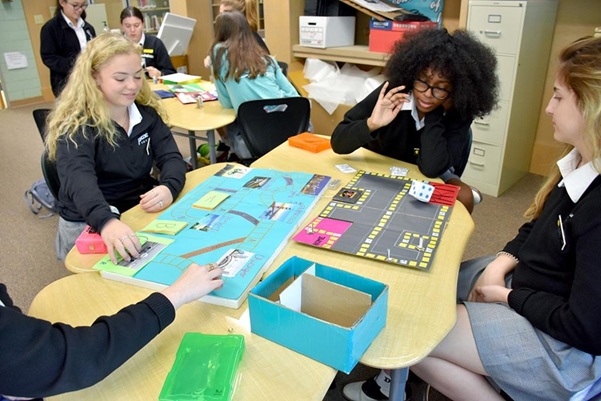In today’s classrooms, teachers are constantly seeking new ways to engage students and make learning more interactive. While traditional teaching methods remain important, the use of games has emerged as a powerful tool for boosting student participation, motivation, and retention of knowledge.
Among these, custom board games stand out as an innovative approach to turning lessons into fun, memorable experiences.
Why Use Board Games in Education?
Board games naturally combine entertainment with learning. Unlike worksheets or lectures, board games provide hands-on experiences that immerse students in active learning.
When customized to fit a specific lesson plan or subject, these games go beyond entertainment. They become tailored educational tools designed to meet the exact educational needs of the teaching purpose.
Benefits of Custom Board Games in the Classroom
1. Improved Engagement and Motivation
Students are more likely to participate actively when learning feels like play. A math lesson disguised as a board game, for example, encourages even reluctant learners to get involved.
2. Adaptable to Any Subject
Custom board games can be designed for any subject – math, science, history, or language arts. For instance:
- A trivia game to review history dates.
- A word-building game for language classes.
- A science adventure game exploring ecosystems.
3. Encourages Collaboration and Social Skills
Most educational board games require players to follow rules and work together. These elements foster communication, cooperation, and healthy competition among students.
4. Supports Different Learning Styles
Board games can integrate visual, auditory, and kinesthetic elements, ensuring that different learners find something engaging. A game with colorful visuals helps visual learners, while dice-rolling and card-drawing add hands-on experiences for kinesthetic learners.
5. Reinforces Knowledge Through Repetition
Board games make it possible to practice the same concepts multiple times without feeling repetitive. Each round becomes an opportunity to reinforce what students have learned.
Examples of Custom Board Games in Education
- Math Bingo: Numbers, equations, or word problems replace traditional bingo cards, helping students sharpen their math skills.
- History Quest: A board game where players move across a timeline, answering questions about significant events.
- Spelling Challenge: Players collect points by correctly spelling words from a custom deck of cards.
- Science Adventure: A game where players explore habitats or ecosystems, facing challenges and answering questions to progress.
- Language Builder: A storytelling game that encourages vocabulary building and sentence formation.
Tips for Teachers Using Custom Board Games
- Align with Learning Goals: Ensure that the game supports your lesson objectives.
- Keep Rules Simple: Students should focus on learning, not complicated instructions.
- Balance Fun and Education: Games should be enjoyable while delivering meaningful learning outcomes.
- Encourage Reflection: After playing, discuss what students learned and how it connects to the subject matter.
- Use Customization Wisely: Tailor the game’s content – questions, challenges, or visuals – to match the grade level and subject.
The Lasting Impact of Learning Through Play
When learning feels fun, students are more likely to retain knowledge and develop a positive attitude toward education. Custom board games provide that balance of fun and function, turning the classroom into a dynamic space where students are excited to participate.
As schools continue to embrace interactive learning, custom board games are proving to be more than just a pastime, they’re a powerful educational tool that makes lessons unforgettable.









